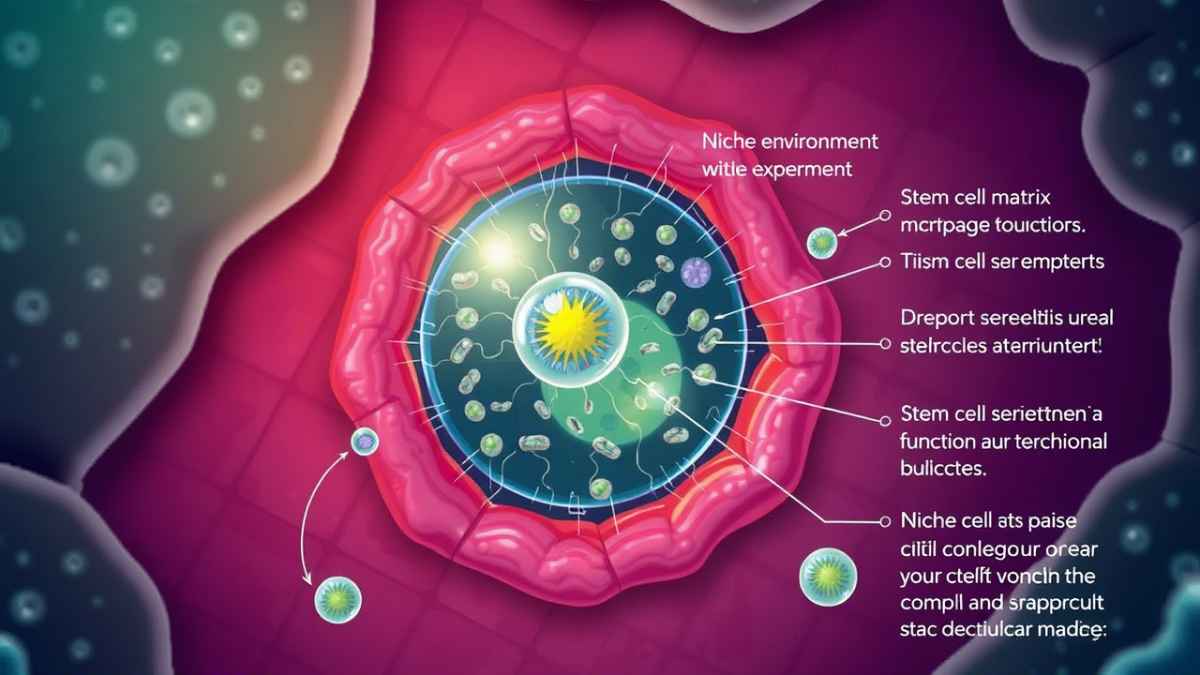Introduction
Niche cellss play a crucial role in cellular biology, particularly in stem cell research and regenerative medicine. These specialized cells create a microenvironment that supports the maintenance, differentiation, and functionality of stem cells. Understanding niche cellss is essential for advancing treatments in biotechnology and healthcare. This guide explores their functions, significance, and future applications.
What Are Niche Cellss?
Niche cellss refer to specialized cells that regulate the behavior of stem cells within a specific environment known as the stem cell niche. These cells help maintain homeostasis, facilitate regeneration, and prevent uncontrolled cell division.
Types of Niche Cellss and Their Functions
1. Hematopoietic Stem Cell (HSC) Niche
HSC niches are located in the bone marrow and regulate blood cell production. They involve osteoblasts, endothelial cells, and mesenchymal stem cells to support hematopoiesis.
2. Mesenchymal Stem Cell (MSC) Niche
MSCs reside in various tissues, including bone marrow, fat, and muscle. They contribute to tissue repair and immune system modulation.
3. Neural Stem Cell (NSC) Niche
Located in the brain’s subventricular zone, NSC niches regulate neurogenesis. Astrocytes and endothelial cells provide structural and biochemical support.
4. Epidermal Stem Cell (ESC) Niche
These niches exist in the basal layer of the skin, facilitating wound healing and skin regeneration.
5. Intestinal Stem Cell (ISC) Niche
Found in the crypts of the intestine, ISC niches control gut epithelium renewal, maintaining digestive health.
Role of Niche Cellss in Stem Cell Maintenance
Niche cellss are essential in regulating:
- Cellular signaling: Growth factors such as Wnt, Notch, and BMP regulate stem cell fate.
- Cell-to-cell interactions: Direct communication maintains homeostasis.
- Extracellular matrix components: Proteins provide structural support for cell adhesion and migration.
The Impact of Niche Cellss in Biotechnology and Healthcare
Regenerative Medicine
By understanding niche cellss, scientists can develop stem cell therapies to treat conditions like Parkinson’s disease, spinal cord injuries, and heart disease.
Cancer Research
Aberrant niche cellss contribute to tumor growth. Targeting these cells can improve cancer treatments.
Tissue Engineering
Scientists engineer artificial niches to enhance tissue regeneration in damaged organs.
Aging and Longevity
Research suggests that rejuvenating niche cellss could slow aging and promote healthier tissues.
Challenges in Studying Niche Cellss
- Complexity of microenvironments: Difficult to replicate in vitro.
- Limited understanding of signaling pathways: Requires further research.
- Ethical concerns in stem cell applications: Regulatory challenges exist.
Future Directions in Niche Cell Research
- 3D bioprinting of artificial niches for regenerative therapies.
- Gene editing technologies to enhance stem cell compatibility.
- Personalized medicine applications based on niche cell modifications.
Conclusion
Niche cellss are fundamental to stem cell regulation and tissue regeneration. Their role in biotechnology and healthcare continues to expand, offering promising solutions for treating degenerative diseases, cancer, and aging-related conditions. Continued research in niche cellss will unlock new therapeutic possibilities for future medical advancements.
FAQ Section
1. What are niche cellss?
Niche cellss are specialized cells that regulate the function and maintenance of stem cells within their microenvironment.
2. How do niche cellss support stem cell function?
They provide biochemical signals, structural support, and regulate differentiation processes.
3. What is the importance of niche cellss in regenerative medicine?
They help develop treatments for tissue damage, neurodegenerative diseases, and organ regeneration.
4. Can niche cellss contribute to cancer?
Yes, abnormal niche cellss can promote tumor growth and resistance to treatments.
5. How are niche cellss studied in laboratories?
Through in vitro cultures, 3D bioprinting, and advanced imaging techniques.
6. Are there ethical concerns in niche cell research?
Yes, especially regarding stem cell sources and genetic modifications.
7. How do niche cellss impact aging?
They influence tissue maintenance, and their dysfunction can accelerate aging.
8. What are the future prospects of niche cell research?
Potential applications in gene therapy, artificial tissue engineering, and personalized medicine.
